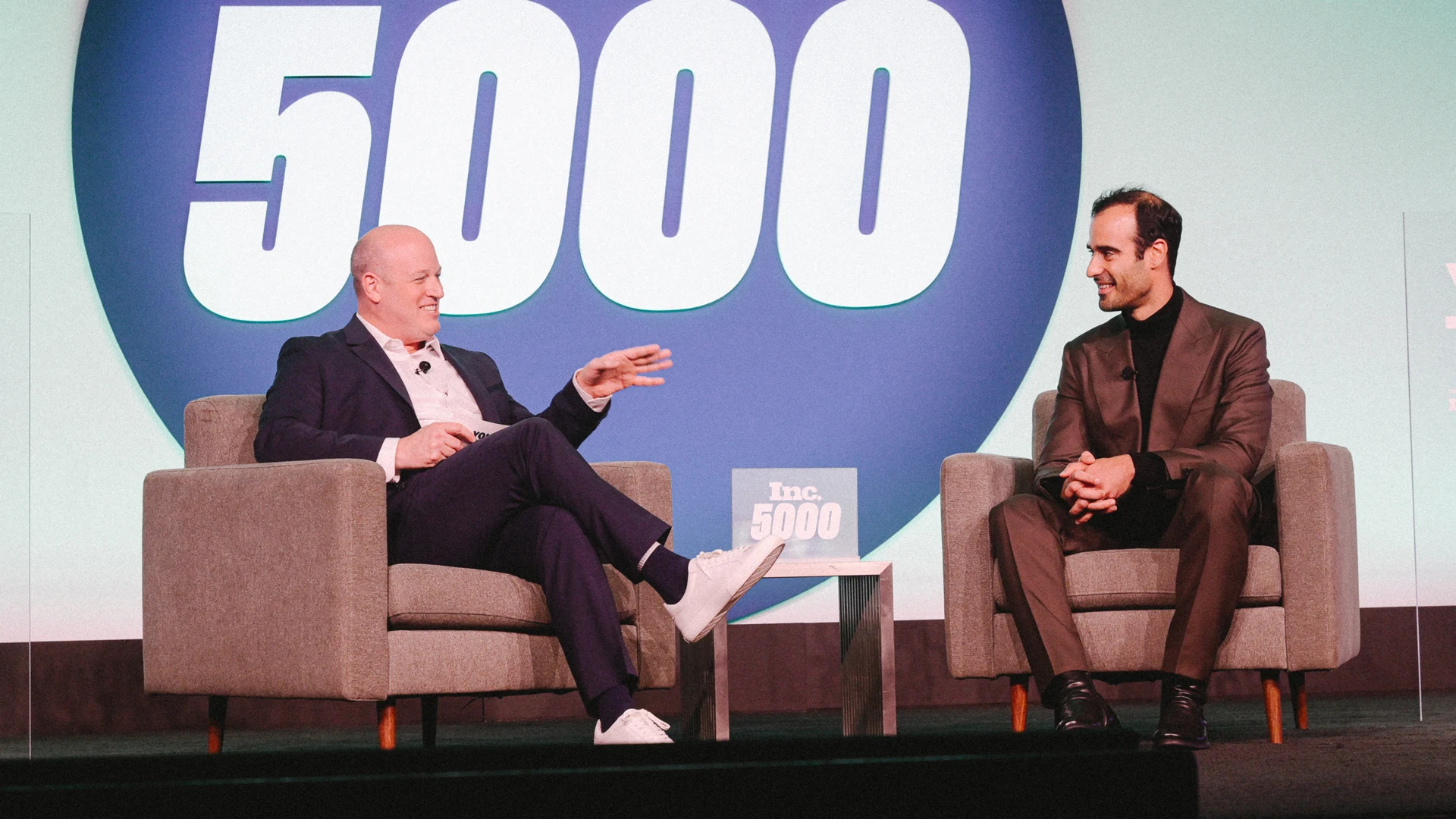Copyright Inc. Magazine

Francis Pedraza, founder, president and chairman of Invisible Technologies, believes that early failures and business-model innovation fueled his rise from a fresh-faced app creator to the helm of an AI services company that made $134 million in revenue in 2024. This September, the company raised $100 million at a reported $2 billion valuation. In a live taping of Inc.’s Your Next Move podcast at the 2025 Inc 5000 Conference and Gala, Pedraza explained how he grew Invisible to unicorn status over a decade. In 2012, one year after graduating from Cornell University, Pedraza launched his first business, a mobile app called Everest. The app was designed to help users achieve personal goals and had financial backing from Peter Thiel, but according to Pedraza, “we were never able to make it work as a business.” The app shut down in 2014. That early failure was a “humbling experience,” Pedraza told Inc. editor in chief Mike Hofman, but in retrospect, it was key teaching that led him to where he is today. “You think that these things are terrible when they’re happening to you,” he said, but “you look back on them all these years later, and you realize it was a gift.” Pedraza’s main takeaway from the failure of Everest? “Have a business model,” he joked. But Invisible Technologies’ business model has evolved significantly since its founding in 2015. Featured Video An Inc.com Featured Presentation Pedraza saw an opportunity to disrupt both enterprise software and enterprise services with a new business model called “AI services.” This model he explained sells access to proprietary software platforms and are supplemented by offering access to field engineers and consulting chief technology officers. These consultants are deployed “inside the customer’s company to solve all the messy problems,” and build software applications that are customized to the client’s specific needs. The idea was to disrupt traditional enterprise software companies like Salesforce, as well as companies like Accenture, which provides businesses with the personnel needed to develop new applications. But as Pedraza pitched his new company, he realized that investors found the “services” part of AI services to be a “dirty word.” They were looking for companies with recurring revenue and high margins that would be “infinitely scalable from day one.” While Pedraza didn’t get the funding he was looking for, he came away from those investor meetings with conviction that he had discovered a lucrative blind spot. Pedraza’s vision for Invisible Technologies was to “break our customers’ processes into little steps like LEGOs,” and then automate as many of those steps as possible. But since many processes still need humans in the loop, Invisible started building a “global network of agents,” made up of subject matter experts from around the world. “If third party tools and our own engineering team couldn’t automate the LEGO,” Pedraza said, “we could put a human in to do that step, and that would allow us to build an end-to-end solution.” For five years, Invisible Technologies built up its reputation working with bigger and bigger companies. In 2020, the company entered a new phase when it landed a major contract with DoorDash to digitize menu options during the pandemic. Soon after, Invisible began using its collection of experts to label AI training data for major AI labs such as OpenAI. In 2023, Pedraza stepped down from the CEO position at Invisible and assumed a new role as executive chairman. Now, instead of running the company day to day, Pedraza said he’s spending more of his time in a “spiritual, cultural, and creative role,” dictating the vision for the company and making high level decisions alongside his board of directors. If he’s successful, Pedraza believes his two companies, Invisible Technologies and Infinity Constellation, will disrupt typical consulting firms like McKinsey, Bain & Company, and Deloitte. Pedraza said all of these companies are “Blockbusters waiting to be Netflixed.”



